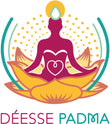Honored to support the University of Lille, as well as other pioneering universities, in their efforts to fight menstrual poverty, we want to highlight why a university has to buy sanitary pads for its students.

Since September 2019, Hermeline Pernoud has been Head of the Gender Equality Project within the Sustainable Development and Social Responsibility Department of the University of Lille. Its role is to ensure gender equality within the university, both for students and for employees. It accomplishes this mission of raising awareness mainly through conferences, plays and think tanks. The aim is also to reduce systemic violence, whether administrative, sexist, sexual or economic. Fighting against menstrual precariousness is a way of overcoming economic violence.
Goddess Padma: Why did the University of Lille take the decision to pay periodic protection to its students?
Hermeline Pernoud: It is enough to note that it is normal for toilet paper to be free to understand why it is desirable that periodic protections should be free too. Remember that women must on average pay €8 per month for periodic protection, an expense entirely linked to their sex. Menstrual precariousness is one inequality among others and the CVEC (Student and Campus Life Contribution) is there, among other things, to reduce inequalities between students, hence the reason for distributing free period protection.
Goddess Padma: Who is behind the free distribution of sanitary pads at the University of Lille?
Hermeline Pernoud: It was Sandrine Rousseau, Vice-President of Campus Life and in charge of Gender Equality, who launched the initiative with a first large-scale distribution in March 2019. The objective of his mandate is to create the conditions for students to be able to study peacefully. Sandrine Rousseau also oversees Sustainable Development and Social Responsibility, where ecology is also dealt with. These three sectors meet on the issue of menstrual precariousness.
How did you select the protections to distribute?
Hermeline Pernoud: We started with disposable protections because they are the best known by the general public. Then we wanted to offer ecological options with menstrual cups and SHL (washable sanitary napkins). Once the quality was assured, we have, among other things, taken care to combine the ecology of the products and their ease of use so as not to increase household chores or the stress linked to the taboo of menstruation. This is how the Claripharme brand cup was chosen as the menstrual cup because it comes in a box that makes it convenient to sterilize, and Déesse Padma was chosen as SHL because the towels are colourful, machine-washable and therefore easy to clean, even for a student going to a laundromat.
How do students react to distributions?
Hermeline Pernoud: Some ask for the products with a little embarrassment, others with pride. The fact of distributing the periodicals trivializes the subject because the students talk about it during the distributions. Within the Sustainable Development and Social Responsibility Department, care is taken to create spaces of trust that bring students out.s of their routine in order to discuss sensitive subjects such as periods differently And it works! The exchange is created and the subject can be de-demonized.
Goddess Padma: Lockdown was a special moment, Indian author Arundhati Roy called it an amplifier. Did you feel it in your relationships with students, especially regarding menstrual poverty?
Hermeline Pernoud: During the confinement there was a need for an emergency plan because a large number of students registered food distributions that the university has set up. To this, we wanted to include hygiene products: soap, toothpaste, sanitary pads... When the students saw that they were going to receive sanitary pads, many showed real relief.
The University of Lille has 38,859 female students. Thanks to the free distributions, approximately 10% will soon be equipped with reusable protections (menstrual cup and SHL).
.


